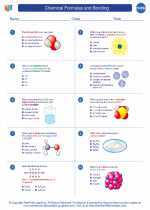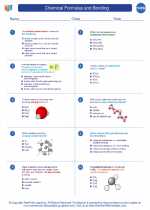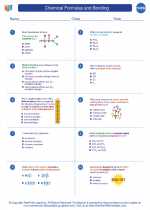Chemical Formulas and Bonding -> construction
High School Chemistry: Construction
Welcome to the study guide for the topic "construction" in high school chemistry. In this guide, we will cover the basic concepts and principles related to construction in the context of chemistry.
Introduction to Construction in Chemistry
Construction in the context of chemistry refers to the process of building or creating chemical substances and materials through various methods and techniques. It involves the understanding of chemical bonding, molecular structure, and the properties of different substances.
Key Concepts in Construction
- Chemical Bonding: The way atoms are held together in a compound. This includes ionic, covalent, and metallic bonding.
- Molecular Structure: The arrangement of atoms within a molecule, which influences the physical and chemical properties of a substance.
- Properties of Substances: Understanding the characteristics and behavior of different substances, such as solubility, conductivity, and reactivity.
Methods and Techniques in Construction
There are several methods and techniques used in the construction of chemical substances and materials. These include:
- Synthesis Reactions: The creation of a compound from simpler materials.
- Purification Techniques: Methods for separating and purifying substances, such as distillation, filtration, and chromatography.
- Material Characterization: Analytical techniques to determine the properties and composition of a material, including spectroscopy and microscopy.
Study Tips for Construction in Chemistry
Here are some tips for studying and understanding the topic of construction in chemistry:
- Understand the Basics: Make sure you have a solid understanding of chemical bonding, molecular structure, and the properties of substances.
- Practice Problem-Solving: Work on problems and exercises related to synthesis reactions, purification techniques, and material characterization.
- Use Visual Aids: Visualize molecular structures and chemical reactions using models, diagrams, and animations to aid in understanding.
- Review Examples: Look for real-world examples of construction in chemistry, such as the production of synthetic materials and pharmaceuticals.
Conclusion
Construction in chemistry is a fundamental aspect of the field, involving the creation and manipulation of chemical substances and materials. By understanding the principles and techniques involved, you can gain a deeper appreciation for the role of construction in the world of chemistry.
.◂Chemistry Worksheets and Study Guides High School. Chemical Formulas and Bonding

 Worksheet/Answer key
Worksheet/Answer key
 Worksheet/Answer key
Worksheet/Answer key
